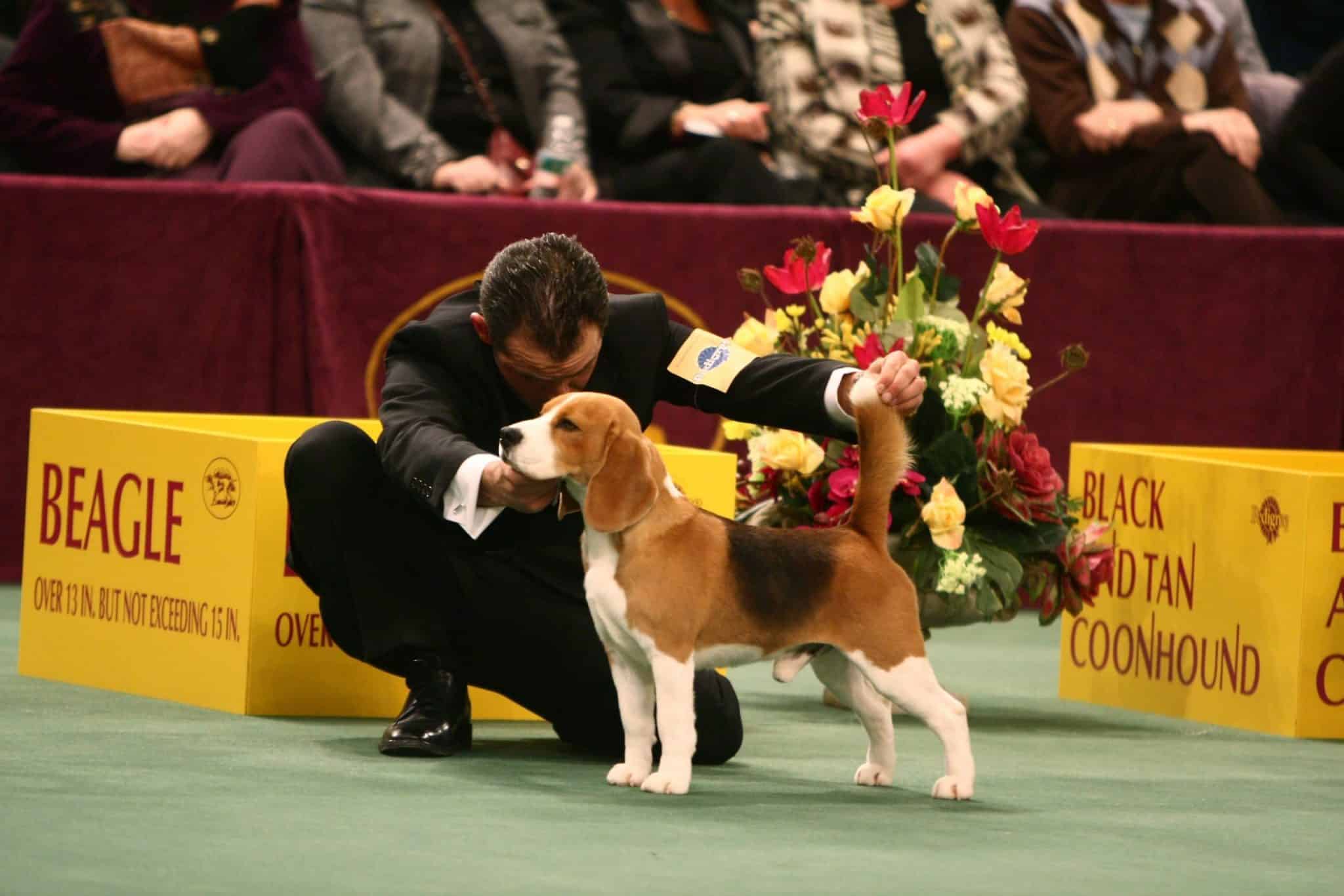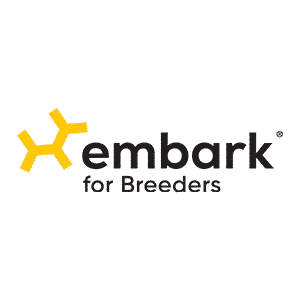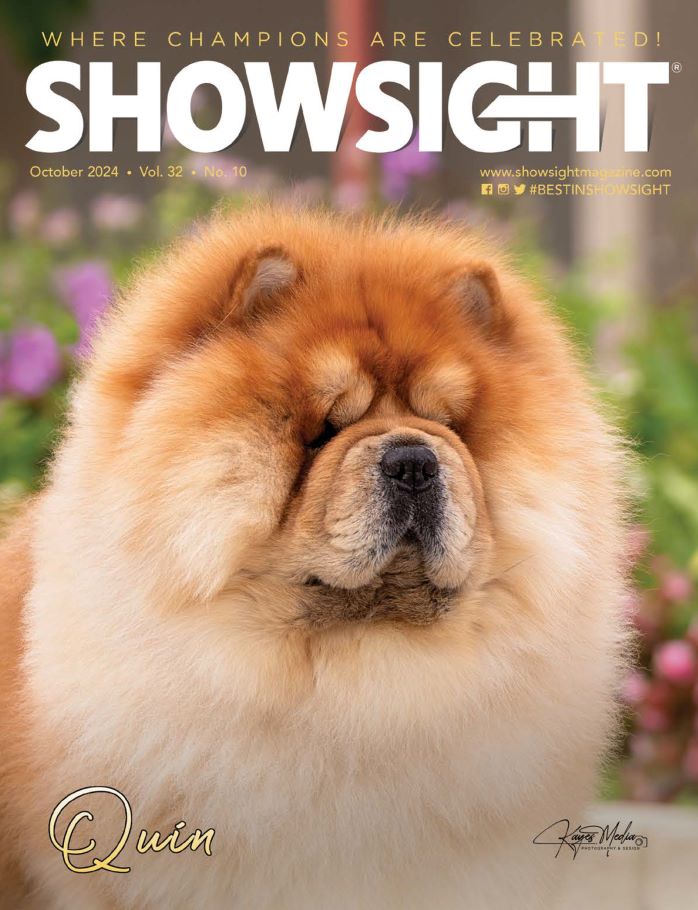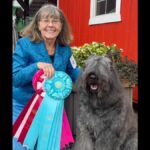Genetics and Dog Shows Share Centuries of History: As you know, genetic research didn’t start at Embark Veterinary. It started with the fathers of evolution and genetics. During the 19th century, an era of curiosity about nature, animals, and scientific discoveries blossomed. In 1859, Charles Darwin published Origins of Species about his theory of evolution using natural selection. A few years later, Augustinian monk, Gregor Mendel discovered through his experimentation with pea plants that characteristics can be passed down through generations. Mendel, considered by many to be the father of genetics, also defined the words “recessive” and “dominant” in his 1866 paper explaining how invisible factors (genotypes) can predictably produce visible traits (phenotypes).
Following Mendel’s discoveries, Friedrich Miescher, a Swiss physiological chemist, discovered what he called “nuclein” or the nuclei of human white blood cells. What he actually discovered became known as deoxyribonucleic acid or DNA. Despite these revolutionary discoveries, the scientific community took decades to embrace them. Meanwhile, for centuries, dog breeders had been selectively breeding purpose-bred dogs. But around the 1850s, breeding programs (starting with English Foxhound packs) began to be recorded. In 1873, the Kennel Club in England started the first purebred dog registry and published official breed studbooks. Across the Atlantic, American dog fanciers were just as keen as their British Isle counterparts in holding field trials and dog shows. By 1877, the Westminster Kennel Club held its first dog show. In 1884, the American Kennel Club became the governing body of the sport of purebred dogs through its dog show rules, registry, and breed studbooks. Westminster was its first member club. Around 1900, British biologist William Bateson brought Mendel’s theories back to the forefront of the scientific community. Savvy dog breeders began to follow Mendelian inheritance when planning their breeding programs, with a new understanding of visible and invisible traits. Selective breeding of purebred dogs with closed gene pools would advance canine genetic research in the future.
As more dog breeds emerged at the turn of the 20th century, dog shows began classifying them by type into Sporting, Non- Sporting, Terrier, Toy, and Working Groups. In 1944, Oswald Avery identified DNA as the substance responsible for heredity and, in 1950, Erwin Chargaff continued that research with his discovery that DNA was species-specific. Genetic discoveries continued with Rosalind Franklin’s work in 1951 on X-ray diffraction studies, which set the groundwork for the discovery of DNA’s double-helix structure by James Watson and Francis Clark in 1953. By 1983, not only did the Herding Group debut at Westminster but Huntington’s became the first mapped human genetic disease. In 1999, Narcolepsy became the first mapped canine genetic disease by a team of researchers at Stanford University.
During the 21st century, the human genome was sequenced in 2003, followed by the canine genome in 2005 with “Tasha” the Boxer. In 2008, “Uno” the Beagle became the first Westminster Kennel Club Best in Show winner to donate DNA to research. His contribution helped to launch the first-ever canine SNP array.
By 2015, Embark Veterinary founders Ryan and Adam Boyko’s DNA research contributed to the understanding of the origins of the domestic dog. Their love of dogs and science, guided by their mission to improve the life and longevity of all dogs and end preventable diseases, evolved into the founding of Embark Veterinary. In 2019, Embark Veterinary was selected as the official Dog DNA Test of the Westminster Kennel Club. In 2021, Embark scientists published their roan gene discovery. This was followed by the red intensity gene research article in May.
Embark Veterinary may have a short history compared to that of the Westminster Kennel Club. However, the contributions of Embark’s founders, Ryan and Adam Boyko, have been felt across the canine world thanks to their research into the origin, over 15,000 years ago, of domesticated dogs. Ryan and Adam have spent the last decade learning everything they can about dogs and genetics. Meanwhile, The Westminster Kennel Club is America’s oldest organization dedicated to the sport of dogs. The West- minster Kennel Club Dog Show is the second-longest continuously held sporting event in the US and, since 1948, is the longest nationally televised live dog show. The club has spent more than a century enhancing the lives of all dogs. A partnership between the two organizations was simply a natural fit.
In June 2021, Embark and Westminster will team up again at the 145th Annual Westminster Kennel Club Dog Show, held at Lyndhurst in Tarrytown, New York, on June 11th-13th. Embark will have an on-site swabbing station for exhibitors and award every Best of Breed winner an Embark for Breeders DNA Kit. Embark will also donate $10,000 toward canine health research in honor of the Best in Show winner. It’s evident that genetics and dog shows have shared a long history over the centuries, coming together today with a shared love of purebred dogs.
Enter to win a trip to The Westminster Kennel Club Dog Show’s Best In Show 2022.
Genetics and Dog Shows Share Centuries of History
PHOTO CREDIT: WESTMINSTER KENNEL CLUB










